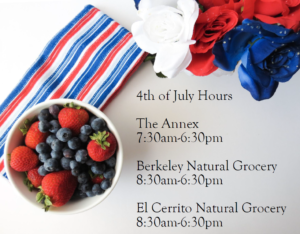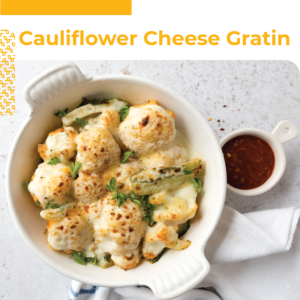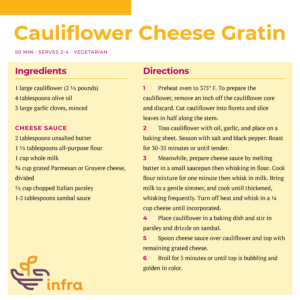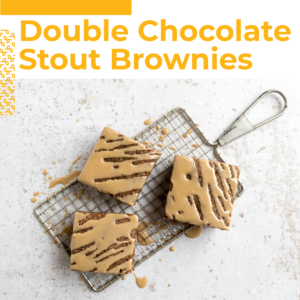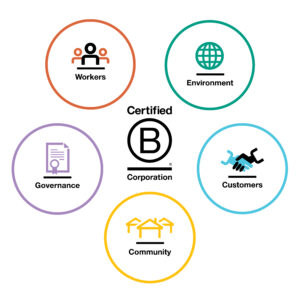All locations will be closing at 6:30pm on Wednesday, July 4, 2024
Happy Father’s Day
Information Regarding Organic Bulk Walnut Recall
Our organic bulk walnuts are NOT a part of this recall.
We get our organic bulk walnuts from Dixon Ridge Farms in Solano County.
https://www.solanocounty.com/depts/agriculture/agricultural_standouts/drf/default.asp
For more information about the recall of Organic Bulk Walnuts and Pieces in California for e.coli.
https://www.cdc.gov/ecoli/walnuts-04-24/index.html
May 2024 Sales Flyer
2024 05 May Sales Flyer (larger print)
April 2024 Sales Flyer
2024 04 April Sales Flyer (large print)
New Everyday Program!
You may notice some new signs on shelves throughout the store, and we want to make sure you know what they mean.
The Everyday signs showcase staples at everyday low prices. You can count on these high-quality essentials at an affordable price that means you can get them, well … every day if you want to! This program is one part of our broader efforts to make sure good food is accessible to all. With organic and non-GMO options, these are items you can feel good about buying and eating.
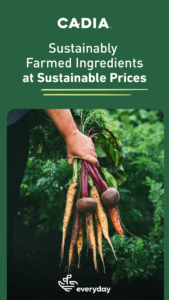 We know that eating healthy foods can sometimes feel like a luxury – especially if you’re on a tight budget. But with Everyday, you can shop with confidence, knowing that you’re getting the best value for your money. We believe that healthy eating should be accessible to everyone, and we’re committed to making that a reality.
We know that eating healthy foods can sometimes feel like a luxury – especially if you’re on a tight budget. But with Everyday, you can shop with confidence, knowing that you’re getting the best value for your money. We believe that healthy eating should be accessible to everyone, and we’re committed to making that a reality.
Taking part in the Cadia Everyday Program allows us to offer even lower prices to our customers on select Cadia items. We have lowered the prices on 95 Cadia items throughout the stores. Each item will be signed at the shelf to let shoppers know it’s an everyday deal. These prices will not change for at least three months. After three months, our suppliers may adjust some as necessary and then another three-month cycle will begin.
So why wait? Head to our stores today and start saving on all your grocery essentials. From frozen fruits and vegetables to snacks and pantry staples, we’ve got everything you need to eat well and feel great – at prices you’ll love.
At The Natural Grocery Company, we’re passionate about natural and organic food, and we’re excited to help you make healthy eating a part of your everyday routine. So come on in, shop around, and enjoy the benefits of new Everyday Program. We can’t wait to see you!
Regular Hours of Business all Easter Weekend!
Cauliflower Cheese Gratin Recipe
Double Chocolate Stout Brownies
Need a little more protein in your diet? These double chocolate stout brownies use black beans and chocolate stout beer for added protein, fiber, and a little flavor kick.
Double Chocolate Stout Brownies
Makes 9 brownies
Total Time: 1 hour 10 minutes
Vegetarian
15 ounce can black beans, rinsed and drained
2/3 cup chocolate stout beer
½ cup all-purpose flour
1 cup cane sugar
¾ cup cocoa powder
¾ cup brown sugar, packed
1 stick unsalted butter, melted and cooled
3 large eggs
1 teaspoon vanilla extract
¼ teaspoon sea salt
½ cup semisweet chocolate chips
Glaze:
1 cup confectioner’s sugar
1 tablespoon milk
1 tablespoon chocolate stout beer
- Preheat oven to 350° F. Line an 8×8-inch baking pan with parchment paper.
- Using a blender or food processor, blend beans and stout until smooth. In a mixing bowl, combine bean mixture, eggs, melted butter, vanilla, and salt. Stir until mixed.
- In another mixing bowl whisk together flour, cane sugar, cocoa powder, and brown sugar.
- Add dry into wet ingredients and mix until just combined. Fold in chocolate chips.
- Pour batter in prepared baking pan and bake for 48 minutes. Cool completely before glazing.
- For glaze, stir together confectioner’s sugar, milk, and stout. Drizzle over cooled brownies and serve.
What is a B-Corp?
Have you ever seen a B logo on a product and wondered what it means? B-Corporations have been put through a rigorous set of social and environmental standards to ensure that they positively impact workers, communities, customers, and our planet. This March, we’re talking about what it means to be a B-Corp, and providing education on how you as a shopper can make a difference with your dollars. Stay tuned! 🌎


